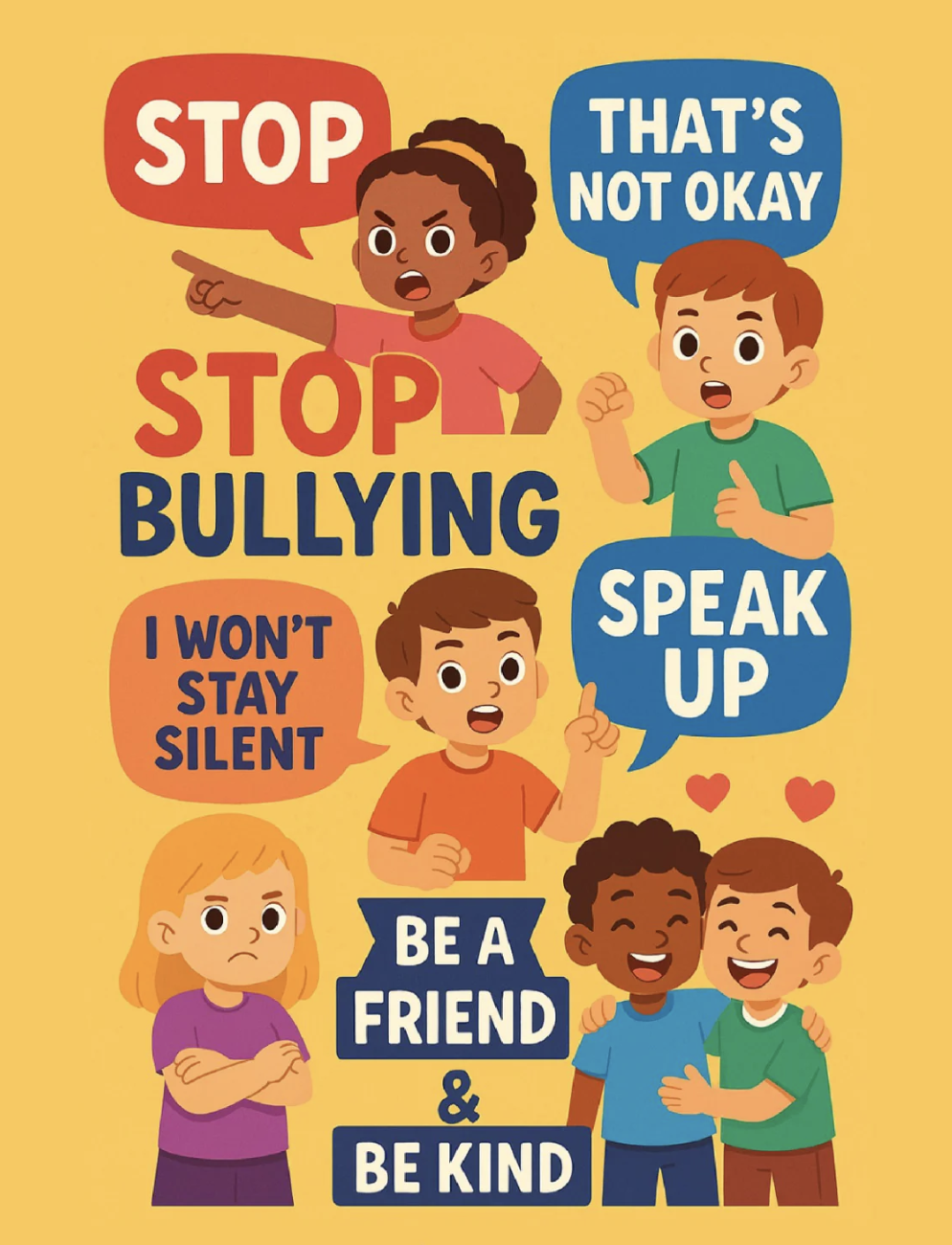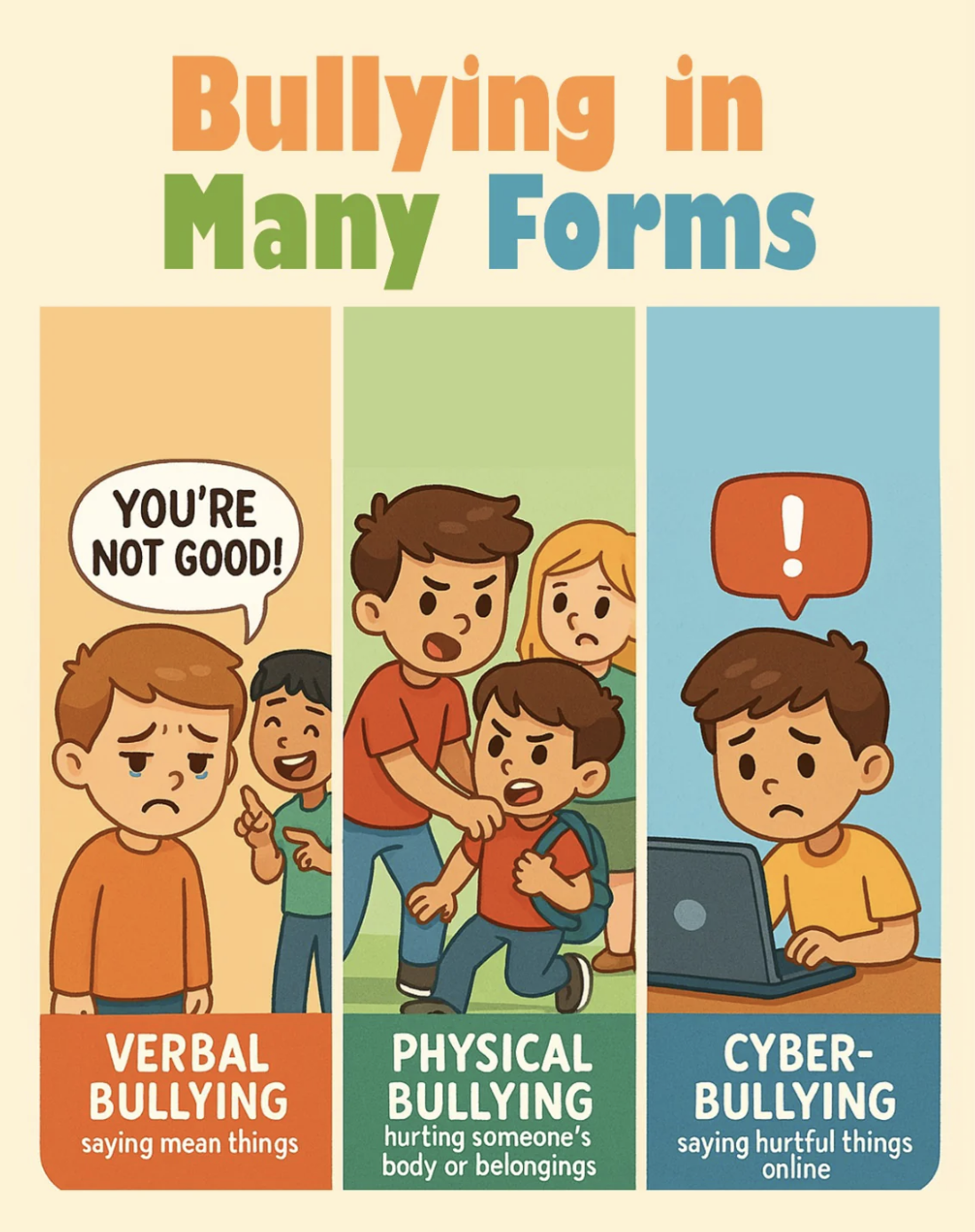Anti-Bullying Specialist
What is Harassment, Intimidation, or Bullying (HIB)?
According to New Jersey law (N.J.S.A. 18A:37-14), HIB means any gesture, written, verbal, physical act, or electronic communication (like a text, post, or email) that is:
- Motivated by a distinguishing characteristic — This means it’s based on something about the student, such as their race, color, religion, ancestry, national origin, gender, sexual orientation, gender identity or expression, or a mental, physical, or sensory disability, or any other trait that makes the student different.
- Takes place in a school setting — This can happen on school property, on a school bus, at a school event, or even off school grounds if it affects the school environment.
- Causes harm or creates a hostile environment — The behavior must:
- Physically or emotionally harm a student, damage their property, or make them afraid of harm;
- Insult or demean a student or group of students; or
- Create a hostile educational environment that interferes with the student’s ability to learn or feel safe at school.

Conflict vs Bullying
It’s important to understand that not all disagreements or arguments between students are considered bullying. Conflict is a normal part of human development and happens when two or more students have opposing views or compete over something, such as a disagreement over a relationship or personal belongings. Bullying, on the other hand, is one-sided and intentional, where one or more students target another student to cause physical or emotional harm. Unlike ordinary conflict, bullying is motivated by a distinguishing characteristic (such as race, gender, or disability) or repeatedly targets someone to create a hostile environment. Bullying can take different forms, including: verbal (taunting, name-calling, threats), psychological (spreading rumors, social exclusion, breaking up friendships), physical (hitting, shoving, taking belongings), and cyberbullying (using technology like social media, texts, or emails to harm others). Even if a behavior does not meet the legal definition of HIB, consequences and restorative interventions will still be applied in accordance with the district’s Code of Conduct.

